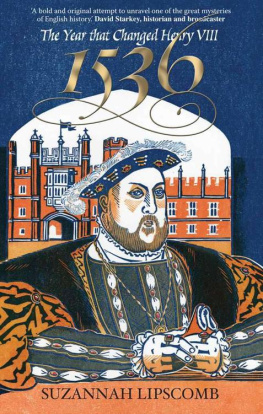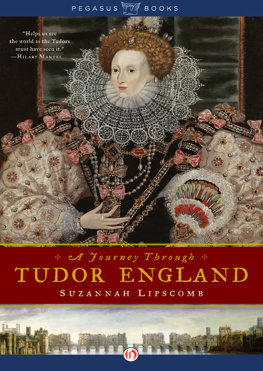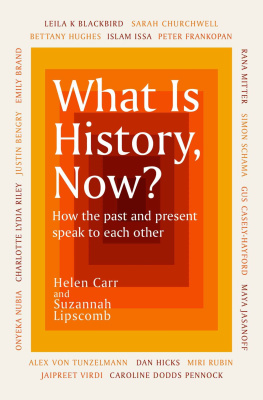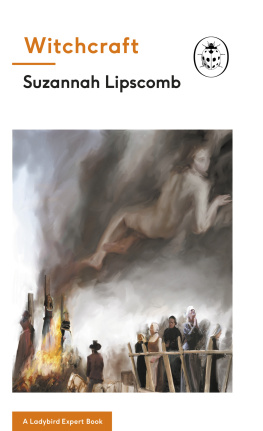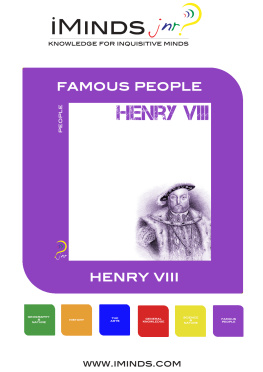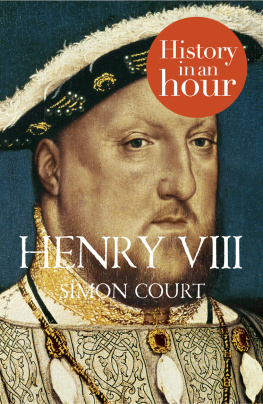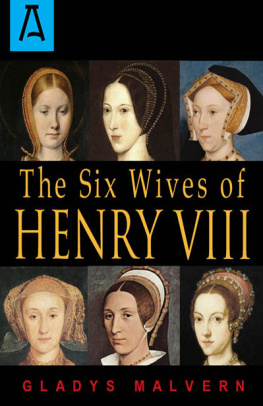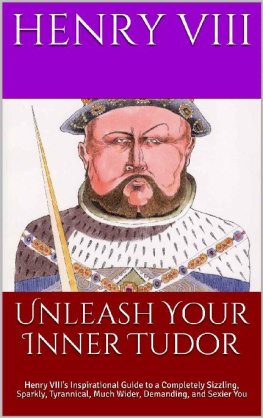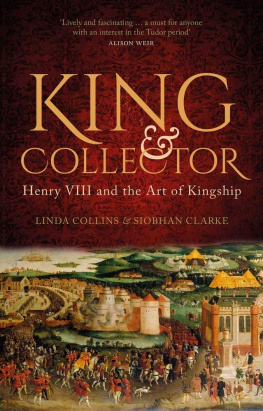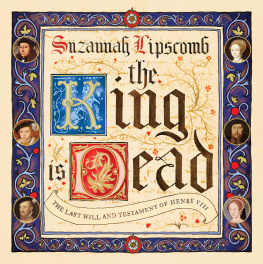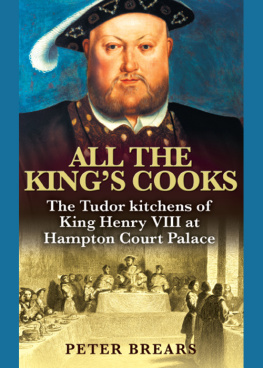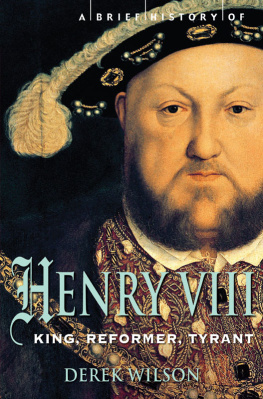
Copyright 2009 Suzannah Lipscomb
This edition copyright 2009 Lion Hudson
The right of Suzannah Lipscomb to be identified as the author of this work has been asserted by her in accordance with the Copyright, Designs and Patents Act 1988.
All rights reserved. No part of this publication may be reproduced or transmitted in any form or by any means, electronic or mechanical, including photocopy, recording, or any information storage and retrieval system, without permission in writing from the publisher.
Published by Lion Books
an imprint of
Lion Hudson plc
Wilkinson House, Jordan Hill Road,
Oxford OX2 8DR, England
www.lionhudson.com/lion
UK hardback ISBN 978 0 7459 5365 6
US hardback ISBN 978 0 8254 7938 0
UK paperback ISBN 978 0 7459 5332 8
US paperback ISBN 978 0 8254 7922 9
epub ISBN 978 0 7459 5903 0
Kindle ISBN 978 0 7459 5902 3
First edition 2009
First electronic edition 2012
Text Acknowledgments
Scripture taken from the New King James Version. Copyright 1982 by Thomas
Nelson, Inc. Used by permission. All rights reserved.
Cover illustration: Clare Melinsky
A catalogue record for this book is available
from the British Library
Praise for 1536
Suzannah Lipscomb shows vividly how the events of a single tumultuous year, from marital betrayal to mass rebellion, crystallized Henrys personal fears, religious priorities, political style and visual image, shaping the tyranny of his last years, the idiosyncrasies of his Reformation and the lasting myth of the wilful colossus.
Steven Gunn, Lecturer in Modern History, University of Oxford
An enlightening and comprehensive analysis of a pivotal year in Henry VIIIs reign.
Tracy Borman, author of Kings Mistress, Queens Servant: Henrietta Howard
1536 is a lucid and evocative account of Henry VIII in his times, and a finely judged portrait of the pomp, envy, fury and melancholy of kingship. It is also an object lesson in male vainglory, and the precipitous decline even the most gilded life can lurch into: of how the best-known and most naturally gifted monarch in British history succumbed to the strange, familiar passions of age, arrogance and insecurity.
Tom Chatfield, Arts & Books Editor, Prospect
At once scholarly and a joy to read.
Thomas Betteridge, Reader in Early Modern English Literature,
Oxford Brookes University
For my father and mother, Nick and Marguerite,
my great-aunt, Sylvia,
and in loving memory of my grandad, Charlie,
all of whom were proud of the book before
a word of it had been written.
Acknowledgments
This book would not have been possible had I not been offered the post of Associate in the Knowledge Transfer Partnership between Historic Royal Palaces and Kingston University, which is part-funded by the Arts and Humanities Research Council. I am very grateful for the wonderful opportunities this role has opened up to me, this book included.
I would like to express my gratitude to Historic Royal Palaces for kindly agreeing to release copyright on the research I had carried out as part of my duties as the Research Curator on the Henry VIII project, and especially would like to thank Lucy Worsley, Polly Schomberg, Erica Longfellow and Kent Rawlinson for their support and friendship. My thanks also go to Benedetta Tiana for being the first person to be enthused by the 1536 idea!
I am grateful to the many scholarly giants on whose shoulders I have stood. I would particularly like to acknowledge my debt to the work of George Bernard, Susan Brigden, Xanthe Brooke and David Crombie, Michael Bush and David Bownes, C. S. L. Davies, G. R. Elton, Christopher Haigh, R. W. Hoyle, Eric Ives, Stanford E. Lehmberg, Diarmaid MacCulloch, Peter Marshall, Alec Ryrie, David Starkey, Tania String and Greg Walker. I thank Tania String for giving me a copy of a forthcoming article in draft. I am very grateful to my peer-reviewer, Eric Ives, for his thoughtful comments on the text. As always, the errors that remain are mine alone.
On a personal note, I would like to thank Tom Betteridge, my wonderful DPhil supervisor Robin Briggs, Lyndal Roper and the Balliol history workshop, and Susan Brigden, my undergraduate tutor, inspiration and friend the person who first introduced me to the words you loke for ded mens showys. Id also like to thank John Cairns for taking a great authors photo and Miranda Powell for improving the book immeasurably with her thoughtful copy-editing. Thank you to the friends and family who have encouraged and supported me as I wrote this book. I am enormously grateful to Kate Kirkpatrick, my excellent editor, and to my mother, Marguerite Lipscomb, whos been my splendid and untiring first reader and critic, and the source of much encouragement. Thank you.
Preface
M y publishers and I quibbled over the word changed in the title. I had put forward the extraordinary litany of events that occurred in 1536, all with huge repercussions for Henry VIII, those around him and his kingdom in general, and marshalled the evidence of his behaviour after this point, noting how markedly it differed from the early years of his reign. But changed? Was it not too dogmatic, too emphatic? I worried about the confines of a year, especially as the Tudors understood their years to start and end at different points to our 1 January 31 December axis. I also worried about the apparent conceit of positing the seismic shifts of Henry VIIIs thinking within this one (Gregorian) calendar year that occurred after his divorce from Katherine of Aragon, his marriage to Anne Boleyn, the Acts of Supremacy and Succession and the deaths of Thomas More and Bishop John Fisher.
And yet, the more I researched, studied, and pondered the facts, the more convinced Ive become that this year really did change Henry VIII. He did move from being the much fted, glorious, and fun young monarch of the 1510s and 1520s, into the overweight, suspicious, ruthless tyrant who is commonly depicted as in popular culture. In some ways, of course, this was the result of a cumulative process, but the events of 1536 catalyzed, fostered and entrenched this change. Whether looking at Henry VIIIs character, health, religion, image, reputation or legacy, it is possible to talk of before and after 1536.
This book really explores how Henry VIII became Henry VIII and who Henry VIII really was. As such, it sets itself up to tackle what Eric Ives has called the ultimate unresolvable paradox of Tudor history: Henry VIIIs psychology.
A number of commentators have put Henry VIII on the psychiatrists couch. Psychologist J. C. Flgel considered Henry VIII with reference to the Oedipus complex. In doing so, he suggested that Henry was driven by conflicting tendencies in his psychosexual life; that is, the simultaneous desire for, and repulsion by, sexual rivals, incestuous liaisons and chastity in his wives. Miles F. Shore suggested Henry VIIIs childhood separations from his parents, and alternating adulation and brutality, contributed to a mid-life crisis of generativity, extreme narcissism, grandiose fantasies, and transience in relationships. With these serious analyses by psychologists at one end of the scale, at the other is the pop psychology that has informed the production of the myriad films about Henry VIII. The scriptwriter of ITVs 2003 Henry VIII, Peter Morgan, described Henry as a neglected second son theres a vulnerability to him [hes] impulsive, powerful, not a complete oaf, a wounded character. Ray Winstone, who played the title role, reflected, Once [Henry] got rid of his first wife, who was his brothers widow, he lost a bit of his soul. Once you do that, you cant get it back. And each [wife] became easier to get rid of. Thats what I was trying to portray. A man who, at the beginning, was a young man in love, but had been left this legacy by his father: have a son. And that would consume him. Henry VIII can appear to be, as Lacey Baldwin Smith described him, a baffling composite of shifting shadows.

